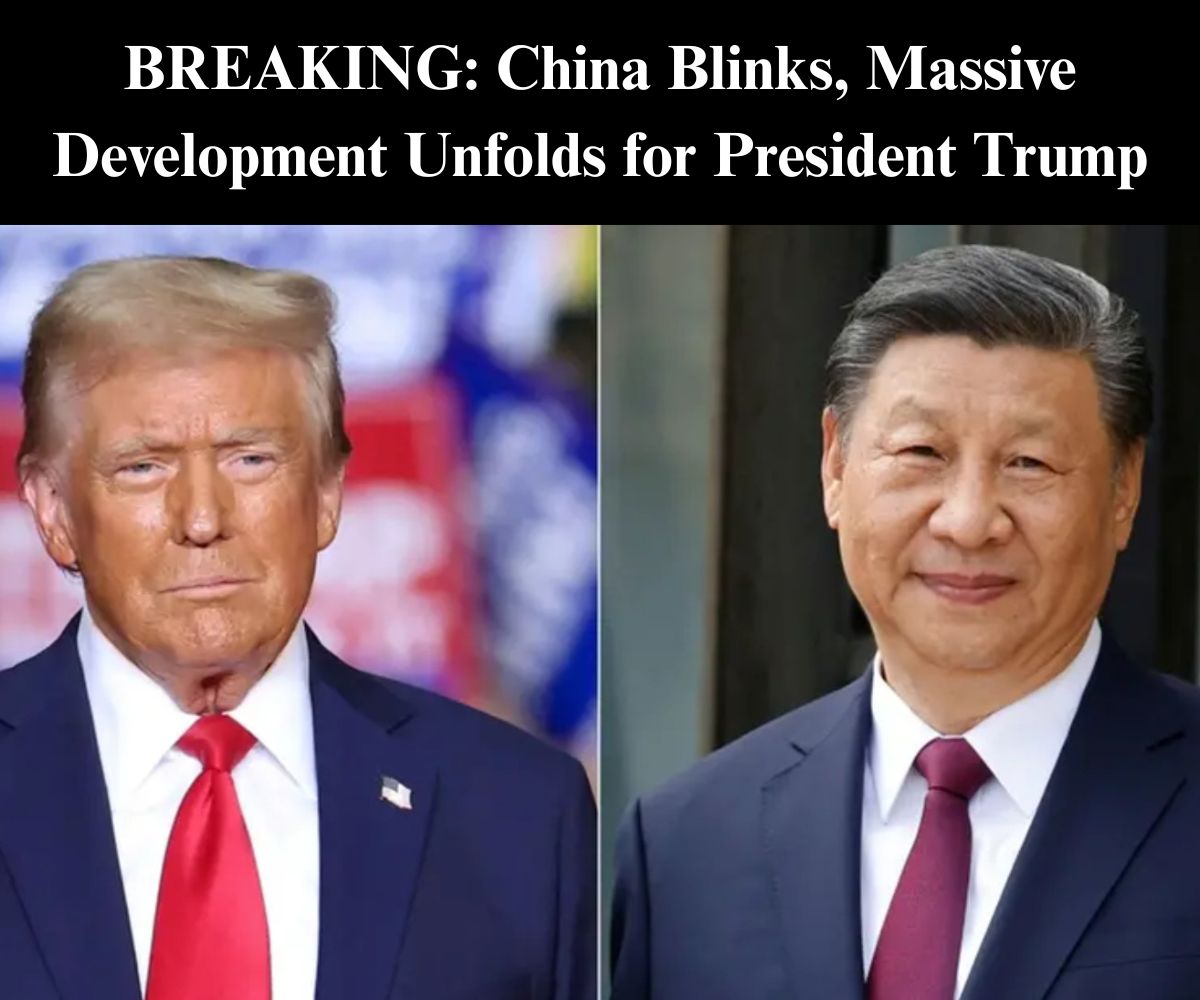The US and Chinese officials are currently continuing their tariff discussions, but China has already made concessions, either as a sign of good faith or as a tacit admission that the Trump administration has the communist nation in its sights.
According to the most recent sources, around one-quarter of all US imports to China have been surreptitiously spared from 125% tariffs, amounting to $40 billion in American-made items that will now reach Chinese customers without the exorbitant surtax.
The decision comes as Beijing seeks to cushion the damage to its economy from President Donald Trump’s across-the-board 145% tariff on Chinese goods.
Pharmaceuticals and industrial chemicals are among the exempted products.
Trade specialists told Bloomberg that the policy shift by Chinese President Xi Jinping to match Washington’s moves was strategic rather than conciliatory; however, it is unclear if disarmament was initiated by the White House.
On Friday, Xi’s spokesperson said Chinese officials are “evaluating” the Trump administration’s latest offer, a key change in tone that might pave the way for protracted negotiations on a historic revision of the US-China trade gap.
“The U.S. has recently taken the initiative on many occasions to convey information to China through relevant parties, saying it hopes to talk with China,” Reuters reported.
However, the Chinese Ministry of Commerce warned that it would not be forced into making a bad deal, adding, “attempting to use talks as a pretext to engage in coercion and extortion would not work.”
On Thursday, U.S. Treasury Secretary Scott Bessent told Fox News’ Maria Bartiromo that he believes Beijing officials are ready to make a deal after weeks of punishing tariffs that may soon cost China’s economy between five and 10 million jobs.
“I am confident that the Chinese will want to reach a deal. And as I said, this is going to be a multi-step process. First, we need to de-escalate. And then over time, we will start focusing on a larger trade deal,” Bessent said.
President Trump imposed 145% tariffs on most Chinese commodities around three weeks ago, prompting Beijing to respond with 125% duties on US imports.
Both parties exempted a limited number of product categories. China, for example, recently established an exception for ethanol imports, emphasizing the essential importance of the fuel source to their economy.
The new tone established by Xi contrasts sharply with the hostile attitude of a speech delivered by Chinese U.N. Ambassador Fu Cong last month at a U.N. Security Council meeting headlined “The Impact of Unilateralism and Bullying Practices on International Relations.”
“Under the guise of reciprocity and fairness, the U.S. is playing a zero-sum game, which is essentially about subverting the existing international economic and trade order by means of tariffs, putting U.S. interests above the common good of the international community and advancing hegemonic ambitions of the U.S. at the cost of the legitimate interest of all countries,” Chinese U.N. Ambassador Fu Cong said in his opening remarks, Fox News reported.
A State Department spokesman responded to Fu’s speech, calling it a “waste of time” for ambassadors and slamming the meeting as an example of China’s manipulation of the “multilateral system to support its economic, political, and security interests.”
This comes as President Trump’s approval rating has risen to near-record levels, despite several days of outrage from Democrats, establishment Republicans, and mainstream media outlets over the president’s ambitious trade changes.
Trump’s support rating increased even after sweeping tariffs were imposed on dozens of trading partners on April 2, according to a new poll conducted by J.L. Partners in collaboration with the Daily Mail, which surveyed 1,000 registered voters.
The study indicated that Trump’s approval rating increased to 53 percent, a four-point improvement from last week’s poll, when it was 49 percent.
